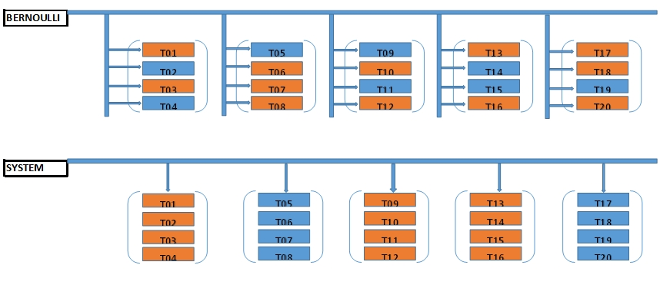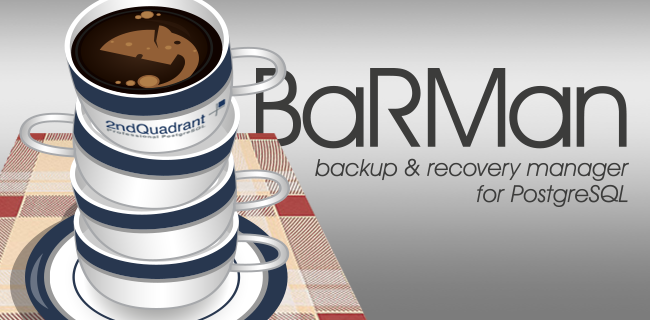The 3rd annual Nordic PGDay will be held on 17th of March in Helsinki this year. Registration is still open, reserve yourselves a seat before it’s too late!
Nordic PGDay is visiting a different Nordic city each year as a tradition. This year the conference will be in Helsinki, last year it was in Copenhagen and it was a great event! You can check last year’s Nordic PGDay to see what you’ve missed and you may not want to miss this year’s chance 🙂
Nordic PGDay 2016
If you are a PostgreSQL person who lives close to Nordic region or want to visit Helsinki, you should definitely check out the conference schedule. This call from the website proves that you can find something interesting for you:
Nordic PGDay 2016 is an excellent chance to learn more about the worlds most advanced open source database among your peers in the Nordic region. Whether you use PostgreSQL professionally or play with it in your spare time; whether you love the new JSONB capabilities or hack on query planner internals; Nordic PGDay will have something for you.
There will be amazing talks with variety of Postgres-related topics from the perspective of developers, DBAs, system admins, database developers and PostgreSQL users. Let’s check the talks quickly and see what will be going around this year in Helsinki.
Schedule and Talk Topics
Event will start with the registration at 08:30. There will be 7 talks, 2 coffee-breaks and a lunch break. The last talk will finish at 17:35.
Let’s see the talks and the topics.
How Did We Live Without LATERAL?
Vik Fearing from 2ndQuadrant will give a talk about “How Did We Live Without LATERAL?” between 15:45 – 16:35, since he is my colleague I will give the priority to Vik 🙂
In his talk he will take a simple problem and show 5 ways to write a query for it, the last one being the simplest of all using LATERAL. So if you’re using PostgreSQL in your production environment or just for fun, you would possibly want to learn tricks for optimising your queries in an efficient way. Then this talk might be interesting for you.
Quick Note: LATERAL is a subquery form which can be used in FROM clause of the queries. If a subquery in the FROM clause is prefixed by LATERAL keyword, we can access the attributes of preceding tables or subqueries in the FROM clause.
The simplest example of LATERAL query is from Postgres docs is below:
SELECT * FROM foo, LATERAL (SELECT * FROM bar WHERE bar.id = foo.bar_id) ss;For learning more about LATERAL and its usage with practical examples you should attend Vik’s talk.
Now, let’s continue with an order by time of the talks.
Explaining EXPLAIN
First talk will be given from Hans-Jürgen Schönig about “Explaining EXPLAIN”. PostgreSQL allow us to run EXPLAIN queries to check execution plans of the queries. Like Hans said:
“EXPLAIN is an essential tool to see, what PostgreSQL does to run a query. Reading a plan is sometimes a bit tricky and needs a fair amount of experience. However, being able to read a plan is not enough – it is also important so know, what to look for to detect bottlenecks and generally bad performance.”
If you are a database developer or a DBA who run queries and try to spot bottlenecks to improve your system’s performance, you might want to join Han’s talk to understand EXPLAIN concept better.
Quick note: EXPLAIN command displays the execution plan that the PostgreSQL planner generates for the supplied statement. The execution plan shows how the table(s) referenced by the statement will be scanned — by plain sequential scan, index scan, etc. — and if multiple tables are referenced, what join algorithms will be used to bring together the required rows from each input table.
One simple example from Postgres docs is below:
EXPLAIN SELECT * FROM foo WHERE i = 4; QUERY PLAN -------------------------------------------------------------- Index Scan using fi on foo (cost=0.00..5.98 rows=1 width=4) Index Cond: (i = 4) (2 rows)Here in the example query plan above; we can see that there is an index named fi on column i and we use a query with an indexable WHERE condition, EXPLAIN shows us query will use index scan. More more examples and a deep understanding of the topic don’t miss Han’s talk.
Sorting Through the Ages
2nd talk is from Gregory Stark about “Sorting Through the Ages” . This talk attracted attentions of many Postgres folk at PgConf.Russia early in this month, and I was very sad about missing it, luckily we’ll have another chance to watch Greg’s talk this time in Helsinki. Greg’s view about sorting code is:
“Reviewing the changes to the sort code in Postgres over the last 10 years clearly shows the kinds of problems users have run into. As usage patterns changed over years these problems changed and as databases scaled up and hardware changed sometimes older assumptions have needed to be revisited.
Upcoming changes in 9.5 and 9.6 will dramatically change the experience further. Making sorting UTF8 and other encodings less of a problem and handling scaling to larger machines with many processors and memory cache more effectively.”
It seems to be this talk is mostly interesting for developer folks and people who would like to grasp Postgres sorting mechanism in details with an evolutionary timeline of Postgres project.
When good databases go bad: dealing with database corruption
Last talk before lunch will be given from Ants Aasma and his talk is about our inevitable nightmare: database corruption! The good thing is if we attend “When good databases go bad: dealing with database corruption” talk , we can shine out of shield when the bad days hit our database. Here is a sneak peek about his talk:
“Even with best databases and hardware, sometimes stuff happens and your database gets corrupted. In this talk we will see what kinds of corruptions exist, how to discover that corruption has happened, how to recover from such situations and how to be prepared and minimise data loss.”
Better to know about database corruption before actually experience it. I think this talk with everyone who works with PostgreSQL.
What’s new in PostgreSQL 9.5
The first talk after lunch will be given Magnus Hagander about the new features of PostgreSQL 9.5. With his “What’s new in PostgreSQL 9.5” talk, Magnus will cover; coolest new things, including things like UPSERT, GROUPING SETs, new WAL management and performance tools.
Quick note: You can check PostgreSQL 9.5 release notes before you join Magnus’s talk.
We wrote about some of the new features of PostgreSQL 9.5 on our blog. If you’d like to learn specifically about the new TABLESAMPLE feature, you can check Tablesample in PostgreSQL 9.5 and Tablesample and Other Methods for Getting Random Tuples blog posts.
If you would like to read about IMPORT FOREIGN SCHEMA you can read PostgreSQL 9.5: IMPORT FOREIGN SCHEMA blog post from our blog.
For more joy, I suggest you to join Magnus’s will-be-great talk about the coolest new features in PostgreSQL 9.5!
PGHoard, hoarding your backups just right
The last talk before the final talk is “PGHoard, hoarding your backups just right” will be given by Hannu Valtonen. PGHoard is a PostgreSQL backup/restore service, it consists of a daemon process and a restore client. In his talk Hannu will mention; some real-world stories of backups gone awry and how to use PGHoard to get reliable backups.
Quick note: In 2ndQuadrant we are using Barman as our solution for backup & recovery.
Barman (Backup and Recovery Manager) is an open-source administration tool for disaster recovery of PostgreSQL servers written in Python. It allows your organisation to perform remote backups of multiple servers in business critical environments and help DBAs during the recovery phase.
If you would like the read more about Barman you can dive into our blog’s Barman posts ocean!
If you’re generally interested in backup/restore topics you should attend Hannu’s talk at the event.
Game Day PostgreSQL
The final talk of Nordic PGDay will be given by Christophe Pettus named “Game Day PostgreSQL”. In his talk Christophe will share his experience handling with high traffic on Postgres databases. Christophe says:
Rather than just buying enough hardware for every possible case, how to do you handle this kind of extreme-burst traffic? We’ll talk about ways that we’ve helped clients cope with both expected and unexpected bursts of activity on their database.
I think this talk is one of best ways of finishing the event, topic seems pretty exciting to me. Real life problems and how the other professionals come up with solutions to that problems always give us a different perspective on our own issues.
Talks are attractive and event will be fun! Do not forget to follow NordicPGDay on twitter.
—
P.S: I will be a staff member for the first time in my life for the PostgreSQL conferences and will be around all day to help you. Please feel free to ask me about conference details and anything related with this event, I’ll be happy to answer!
Hope to see all Nordic Postgres folks in Helsinki next month!




